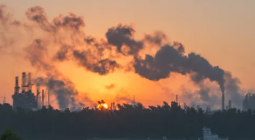EPA suggests FERC consider gas pipelines as potential stranded assets.

The U.S. Environmental Protection Agency staked out a new position on federal reviews of interstate natural gas pipelines, advising the Federal Energy Regulatory Commission to weigh the potential for “carbon lock-in” and the “costly irreversibility” of building such infrastructure.
The EPA, as a representative of the Biden administration, has the potential to shake up debate on a key FERC policy. The recommendation for a broad expansion of climate considerations would mark a sharp departure from the commission’s historical approach. The EPA comment was a major one among a flood of filings from energy companies, environmental nonprofits, and others responding to the commission’s updated notice of inquiry on how it might alter its 1999 natural gas pipeline certificate policy (PL18-1).
Gas pipeline companies and their allies argued that FERC’s existing pipeline policy framework under the Natural Gas Act is sufficient. “The commission should be reticent to implement significant changes to a process that is working as Congress intended,” the Interstate Natural Gas Association of America, or INGAA, told the regulator.
The EPA letter, signed by Associate Administrator Victoria Arroyo, echoed a sentiment of environmental groups that FERC should be careful about locking in long-lived infrastructure that releases greenhouse gas emissions or creates the potential for stranded assets. The environmental agency backed the idea that FERC could seek mitigation of a project’s climate and environmental justice impacts, and offered possible options, such as considering compressor stations with electric turbines.
1 June 2021
IEEFA





